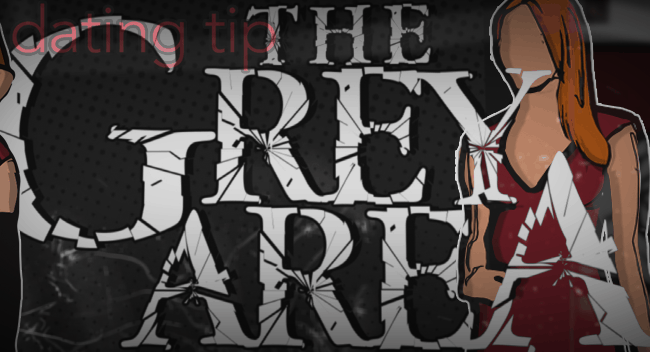There are times when even high-quality women make mistakes and behave disrespectfully. If and when that happens to you—and let’s be clear, even if you did absolutely nothing to deserve it—how you handle the situation will determine the future of your relationship. Because when a woman disrespects you, there are really only three possible outcomes.
Outcome #1: The End of the Relationship
In some cases, her disrespect signals the beginning of the end. Now, sometimes it’s the guy’s decision to end things, but more often than not, it’s actually the woman who goes cold and loses interest—ironically because of how the guy responded to HER bad behavior. I know it’s unfair. I know it’s frustrating. But it’s what happens more often than you’d think.
Outcome #2: Things Get Worse
Unfortunately, the second possibility is even worse. In this situation, the relationship continues, but because the guy didn’t handle the initial disrespect effectively, he sets himself up for even more disrespect in the future. And when that happens, it only escalates. Over time, the behavior gets worse, the disrespect becomes more blatant, and the guy ends up stuck in a downward spiral where he’s gradually losing control.
Outcome #3: You Handle It Right and Win
But there’s a third possibility—and this is the one with the happy ending. If you properly and tactfully address her bad behavior and nip it in the bud, you can save the relationship. Not only that, but it can actually become a win-win situation. When you handle things right, she’ll see her behavior was out of line—and, more importantly, out of character. She’ll stop because she realizes that what she did isn’t aligned with the values she holds. She won’t just be worried about losing you; she’ll genuinely want to behave better.
Over my years in this business, this is the ONLY way I’ve seen that actually works to repair a relationship when a woman steps out of line. The key here is not to react emotionally or intuitively. Most guys respond to disrespect by trying to make her feel bad, hoping for an apology or contrition. But that’s exactly where they go wrong.
Why An Apology is Worthless
Look, I get it. When you’ve been disrespected, your gut instinct is to make her regret what she did. And most guys think that means getting an apology. But here’s the harsh truth: an apology is just a band-aid. It’s a momentary reparation, but it doesn’t create any lasting change.
Instead, you need to respond in a way that evokes an emotion in her that fuels her desire to change. This is a concept I learned the hard way, and it’s something I’ve shared with countless clients, saving relationship after relationship. If you want to know the secret to responding to disrespect, keep reading.
What Counts as Disrespect?
Before we dive in, let’s make sure we’re on the same page. When I talk about disrespect, I’m not talking about a woman saying something slightly offensive or testing you in a way that’s within the realm of normal behavior. If you want to be successful with women, you need to develop a thick skin. A little teasing or testing isn’t disrespectful. Conflict doesn’t automatically equal disrespect.
Disrespect is when a woman blatantly crosses a boundary. If you’re unsure what your boundaries are, ask yourself this: has a woman ever made you feel like less of a man, or like a second-class human? That’s disrespect. And when that happens, something must be done. But most guys get it wrong.
What NOT to Do: Guilting
The typical guy focuses on her behavior and tries to guilt her. He’ll say things like, “How could you do that to me?” or, “You really hurt me,” or even, “What you did was wrong.” I understand why you might say these things. It’s reflexive when someone hurts you. But guilting a woman is one of the worst things you can do, and here’s why.
First, guilting positions you as the victim. And even if you are the victim in this situation, you’re still portraying yourself as weak and powerless. Think about it: victims don’t deserve the bad things that happen to them, but they were also powerless to stop it. Women don’t want to date victims. Sympathy doesn’t equal attraction.
At best, guilting makes her feel bad about herself. She might apologize, maybe even promise not to do it again, but that doesn’t fix anything. She’s going to be left with a lingering feeling that SHE victimized YOU, and every time she sees you, that guilt will resurface. And let’s be real—when something makes us feel bad, we avoid it. If you guilt her, you risk pushing her away.
What You SHOULD Do: Shaming
Now, let’s talk about what you should do. Instead of guilting her, you need to shame her. And no, guilt and shame aren’t the same thing. Guilt is about feeling bad for something you did. Shame is about who you are. Shame makes someone question whether they possess positive qualities like integrity or honor.
Here’s the thing: most women, especially quality women, believe they have those positive qualities. If she’s the type of girl worth giving a second chance, she probably sees herself as a good person. But people are great at rationalizing their behavior, even when they’re wrong. That’s where you come in.
Shaming involves showing her two versions of herself: the one you know and find attractive (the version with positive qualities), and the version who acted disrespectfully (the negative one). By doing this, you make her see that her behavior doesn’t align with her values. And that’s what sparks change.
Example: Text From an Ex
Let’s take a simple example. Imagine you’re dating a girl exclusively, and while you’re watching a movie together, she gets a text from her ex. How do most guys handle this? They guilt her. They accuse her of things that may or may not be true, or they demand to see her phone. Even if they just ask her to explain, it’s still guilting because the underlying message is that SHE did something to hurt HIM.
But as we’ve said, women aren’t attracted to victims. Instead, you want to shame her. You might say something like this: “That’s weird—why is your ex texting you? Does he not know we’re together? You know, one of the things I find really attractive about you is that you’re loyal and dependable. Didn’t you call that Instagram girl a ‘stupid floozy’ for bragging about dating multiple guys? I thought we had that in common, but—was I wrong?”
Now, you’ve presented two versions of her: the loyal girlfriend you admire and the hypocrite who’s still talking to her ex. In this situation, she’s forced to backpedal and explain herself. She’ll start rationalizing her behavior because she cares about how you see her.
The Power of Being the Judge
Shaming puts you in the power position. You’re not the victim—you’re the judge. She’s selling herself to you, and in that process, she’s chasing your validation. That’s good for both of you. It’s good for you because you’re not letting yourself be disrespected, and it’s attractive because you maintain your power and composure. And it’s good for her because you’re giving her a path to realign with her own values.
Why Shame Works and Guilt Doesn’t
Shame motivates improvement; guilt only leads to regret and avoidance. Shame can be edifying—it provides a path forward. Guilt just lingers, creating an imbalance in the relationship. If you want long-term change, shaming is the way to go.
So, remember: next time a woman disrespects you, don’t guilt her. Don’t make her feel bad without showing her a way forward. Shame her—let her see that her behavior contradicts the values she claims to hold. And watch how quickly things change.
Conclusion
In the end, shaming works because it positions you as the person in control. Guilting positions you as a victim, which is never attractive. Shame leads to a desire for improvement, while guilt just breeds resentment.
So, the next time you’re faced with disrespect, keep your power and tactfully guide her toward better behavior. It’s a win-win, and if you play it right, you’ll not only maintain your self-respect, but you’ll also strengthen the relationship.





